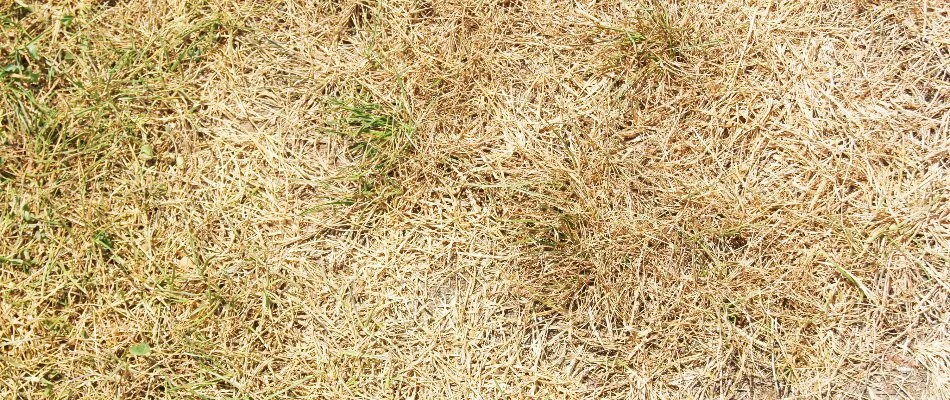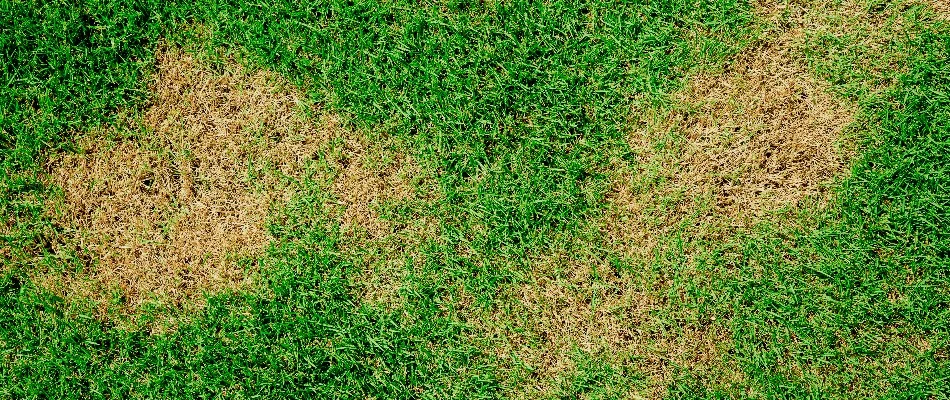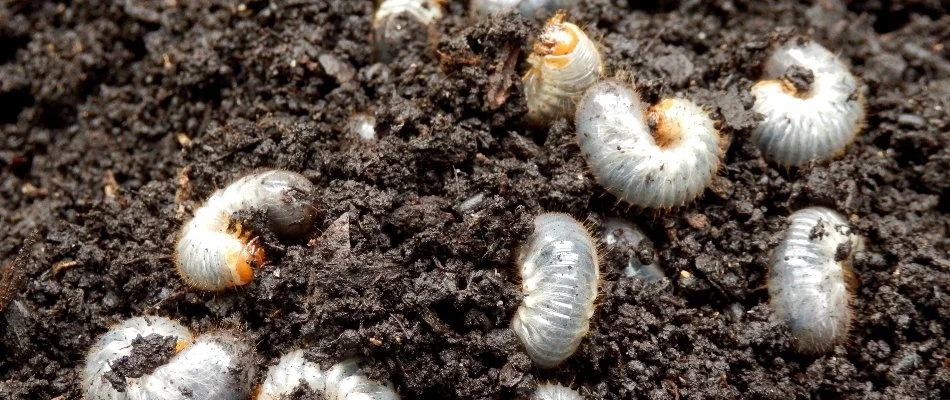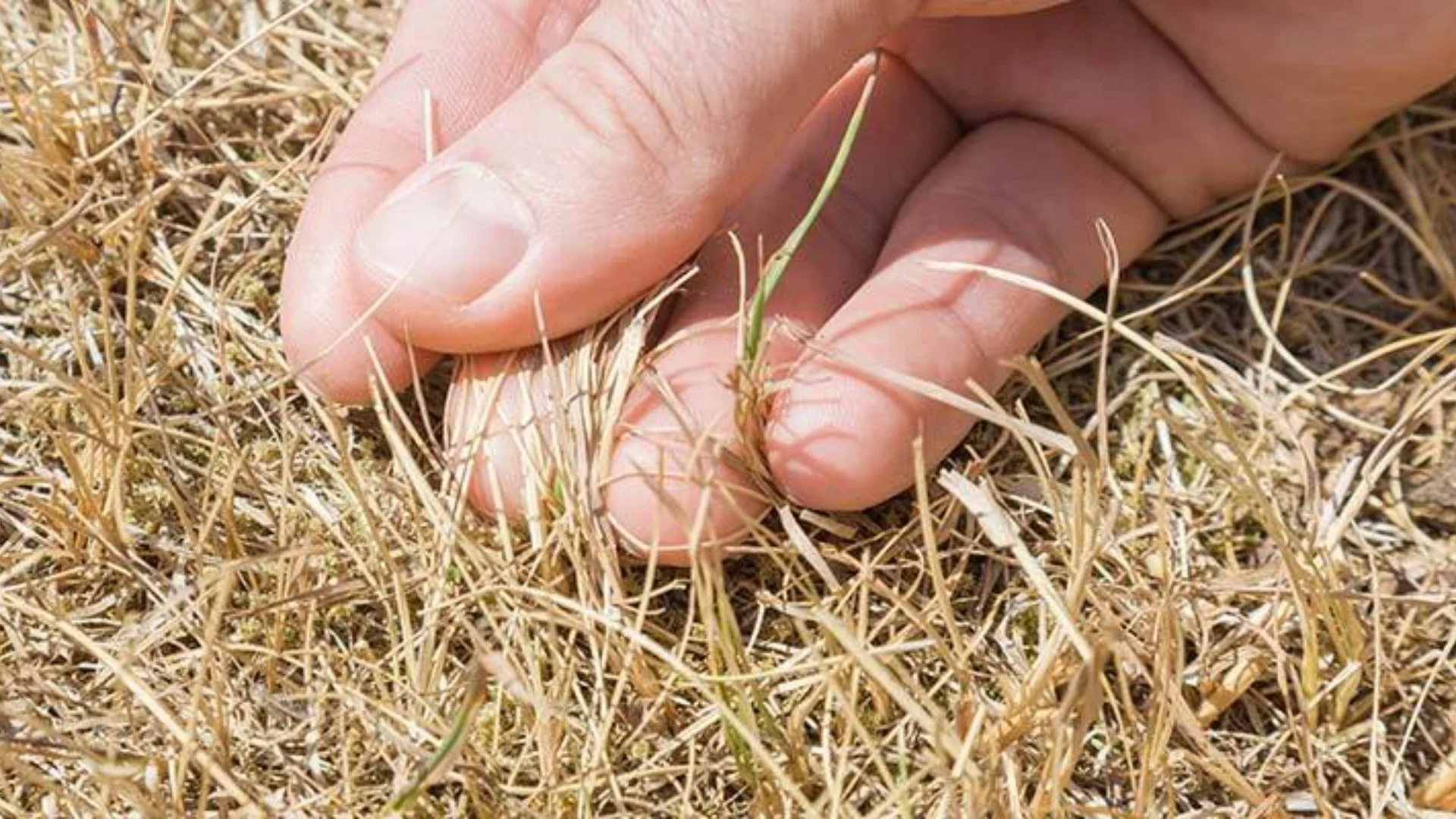Your lawn plays a tremendous role in the curb appeal of your property, so it's understandably frustrating when you find that it has turned brown! A brown turf could mean a lot of different things, including dehydration. Water is a vital resource, so it can lose its vibrant green color when it doesn't get enough. Another culprit behind it turning brown could be lawn diseases, a common one here in Iowa being brown patch. Finally, insects like chinch bugs and grubs can damage it and lead to this loss of color. Whatever is causing it, you'll want to always get an expert opinion before trying to cure the problem yourself so that your grass gets what it needs to revitalize its desirable verdancy.
Dehydration can cause your lawn to turn brown since it's not getting enough water.

Dehydration is one of the most obvious problems that can cause your turf to turn brown. Dehydration results from a lack of water, which is a vital resource it needs to stay healthy and green. While its loss of color is one symptom, others include wilting grass blades that eventually curl in on themselves, cracked soil, and indentations from being walked over that stay long afterward.
You'll want to water your lawn immediately upon noticing signs of dehydration. If it starts to seem better once you do, then it's likely that it was suffering from this. On the other hand, if it doesn't seem to improve, another problem could be the reason behind its brown, lackluster appearance.
Installing an irrigation system on your property is the best way to prevent your lawn from becoming dehydrated!
Your Lawn Can Turn Brown From a Lawn Disease

Another possible culprit of your lawn turning brown is a lawn disease. Several common fungal infections in Iowa can affect your turf and cause this, including the following:
- Brown Patch: This lawn disease causes irregular patches of brown grass ranging from a few inches to several feet in diameter, hence the name.
- Leaf Blight: Leaf blight starts by bleaching the tips of your grass blades, eventually causing light brown patches across your turf.
If you notice these symptoms and suspect a lawn disease is causing your turf's brown color, you'll want to contact pros immediately. When you do, they'll thoroughly inspect it to determine whether it's infected before applying highly effective curative treatments to stop the spread.
Lawn Insects Are a Common Culprit Behind Brown Lawns

Lawn insects could be behind your brown lawn, some common culprits being chinch bugs and grubs. As these pests feast, they leave your turf struggling, so you'll want to be aware of the signs and take action to eliminate them as soon as possible. For example, grubs eat the roots of your grass, severing its tether to the soil and causing it to feel spongey when you walk on it, lifting like a carpet when you tug on it, and most notably, brown patches.
Meanwhile, chinch bugs suck out the juices from the grass blades and inject a toxin that blocks their water intake, causing irregular brown and dead patches. You'll want to get an expert's opinion if you think your lawn is infested with insects, as they'll correctly identify which is harming it and administer their respective treatments to eliminate them.
Is your lawn brown? Call us to sign up for our lawn care services!
If your lawn is brown, don't worry - our team at Frontline Lawn & Landscapes is here to help! We offer lawn care and irrigation installation services to ensure it returns to its lush, vibrant self in no time. We'll thoroughly inspect your turf to determine whether it's suffering from dehydration, lawn diseases, or insects. Once we pinpoint the cause of its loss of color, we'll get to work on remedying it. We can install an irrigation system to give it the water it needs, apply curative lawn disease control treatments to eliminate fungal infections, or combat grubs, chinch bugs, and other pests with our lawn insect control treatments.
We offer our top-notch services to homes, businesses, and HOAs, in Bondurant, IA, and throughout the nearby areas, including Altoona and Ankeny. Call us today at (515) 967-7400 to sign up for any of our services!



Comments (0)
Thanks for your comment!
Thanks for your feedback! Your comments have been successfully submitted! Please note, all comments require admin approval prior to display.
Error submitting comment!
There is a problem with your comment, please see below and try again.